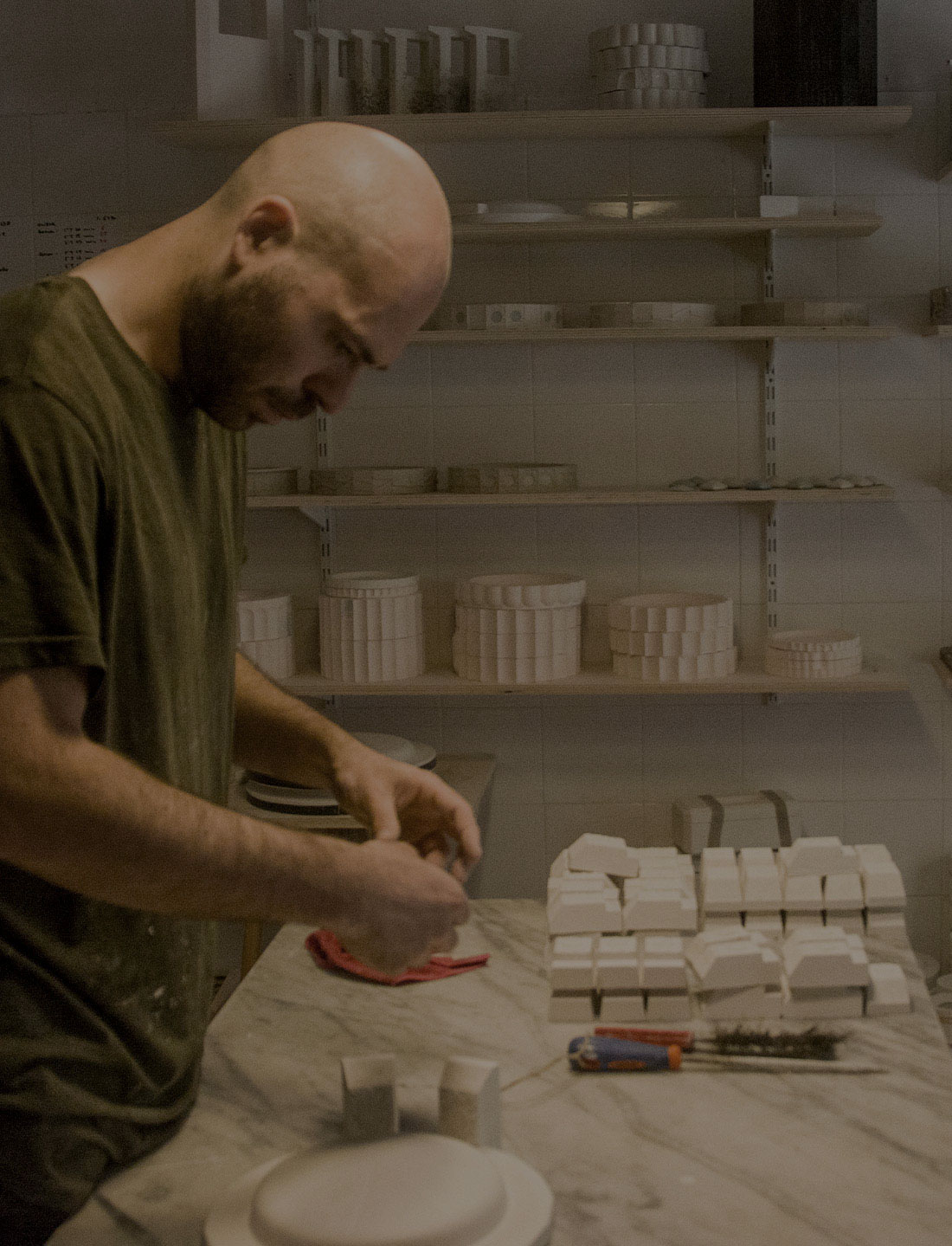
Claudio Campana
1. Introduce yourself, tell us about yourself and your business.
My name is Claudio Campana, artisan. For the past four years I have been carrying out a cross-cultural research on some of the techniques of traditional craftsmanship. Specializing in mold making, I am involved, in the ceramic field, in the prototyping and realization of furniture and table accessories made in porcelain through the technique of casting.
2. When did you become interested in ceramics?
Ceramics appeared accidentally; I had already been studying molds for a couple of years for other applications, then a friend pointed out to me the many possibilities of molding in the world of ceramics, and I have been studying the discipline ever since.
3. What course did you take?
Regarding molding, I specialized at Sermig in Turin, where I learned many techniques gravitating around the world of molds. Regarding ceramics, after a period of self-taught studies, I delved into the making process in the Production Techniques for Design course at the Experimental Center in Montelupo.
4. When did you know you wanted to open your own workshop?
The need to open a laboratory arose as soon as I finished my studies. A way had to be found to translate into form the ideas I had collected during those years through the languages I had learned during my studies. Having a physical space where to imagine and produce is vital.
5. What did you do before and why did you change?
Before opening the workshop I was studying, my path was quite linear. First I graduated in art history in Bologna, and then moved to Turin to study sculpture at the Albertina Academy and ending as already mentioned with a specialization in forming at Sermig in Turin. After that it was a matter of making a choice, to try to work for others in the world of fine arts, as an assistant or in specialized studios or, as I chose to do, to take an individual path.
6. The first step in opening a laboratory
Having a physical space to work in is crucial, both in the practice of exercise and in the creative dimension. But my advice is to aim for savings first, especially if you are still unsure about the path to take, perhaps find a shared space where possible (comparison is good) or even a precarious solution as long as it guarantees a minimum of practicality. I think it is crucial to have "light" starting conditions so that you can change and correct as you go along. Avoid big expenses in the immediate term and invest time in studying and understanding what you are doing.
7. 3 Essential steps for organizing and maintaining a workshop
I think the management of one's work space varies from person to person, but as far as I'm concerned there are some indispensable basics:
- the spatial organization of the work environment, which in addition to facilitating work in practice is reflected in the mental order, which is fundamental;
- The organization and division of space by stages of implementation paying attention to the placement of tools and possible contamination between different materials;
- management of process waste, from water to enamels to soils, management that actually offers many recovery and thus cost-saving solutions but needs to be organized.
8. What advice would you give to young people who want to start a business?
For those who want to open businesses, I feel like giving two different answers. For those who are uncertain, not sure how and what they are doing but want to do it, I advise as already done to start from the very small, a shared space, a remediated room where it happens equipment to the minimum and devote time to study and understand what you do and want to do. Different is the advice for those who are convinced and more knowledgeable, define your needs and find a work space suitable for production, produce, a lot, make mistakes, remake, specialize. Try to define yourself, to find a recognizable identity in what you make. Then along the way there will be time to figure out all the legal issues, how to sell, how to advertise etc...but without conscious production there is little way forward.
9. Would you do it again?
The great fortune of a path like this is that you are free to change, I don't know if I would do it again but for now that is what I want to do.
2 Comments
-
Charles Holland
Malesuada fames ac turpis egestas enas pharetra convallis. Cras pulvinar mattis nunc sed blandit.
POST COMMENT
Related Posts
Ceramics no borders
The school also offers many study opportunities for in-house artists
A day at the Experimental Ceramics Center
On April 9, I had the privilege of participating in a workshop of
Four days of ceramics
Point of reference for Italian and European ceramics.
The 3d and its personalities!
Double interview with Mauro and Simone
Our instructors
Interview with education director Gabriele Migliori.
41 years of activity
In 2024, the School of Ceramics turned 41 years old.


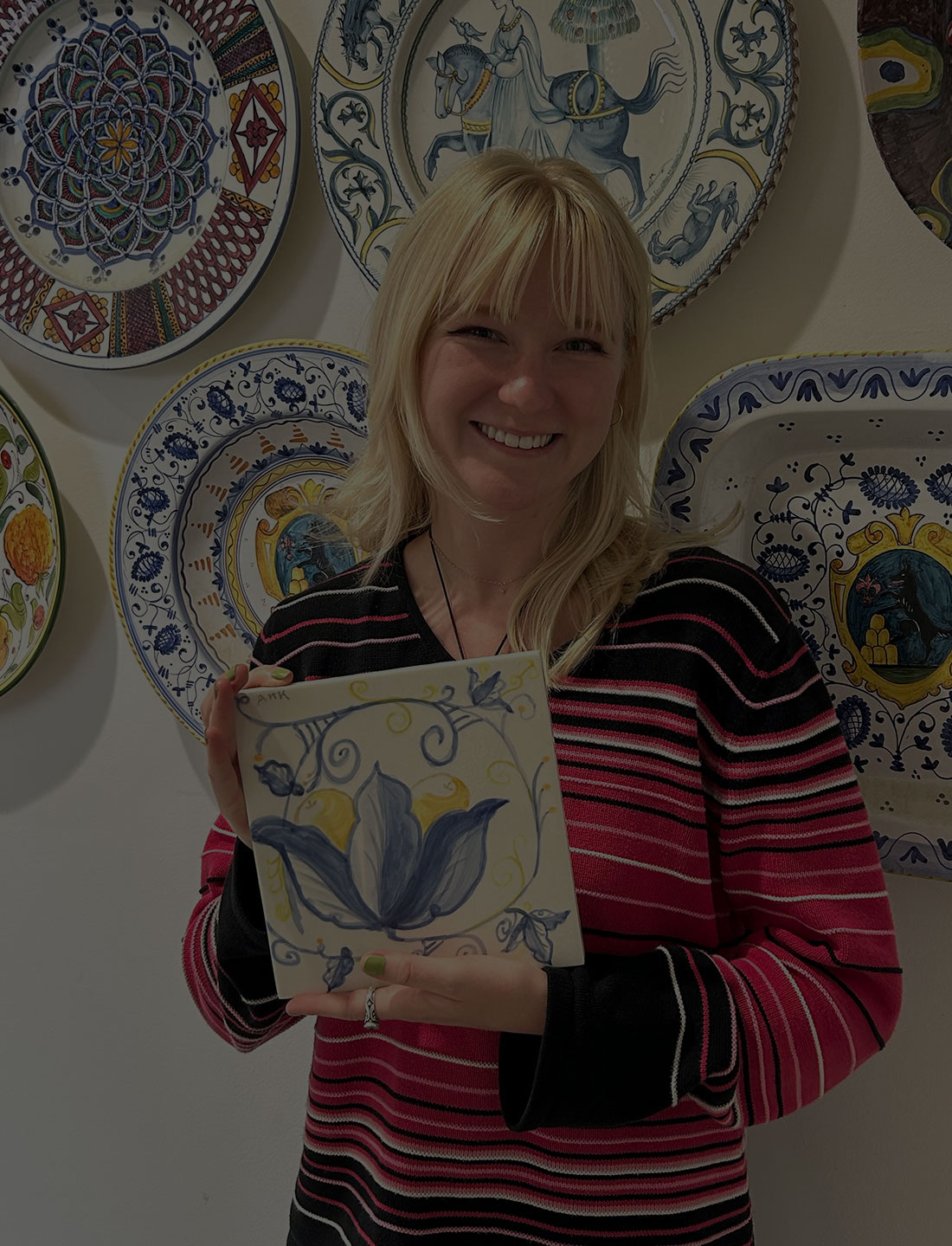

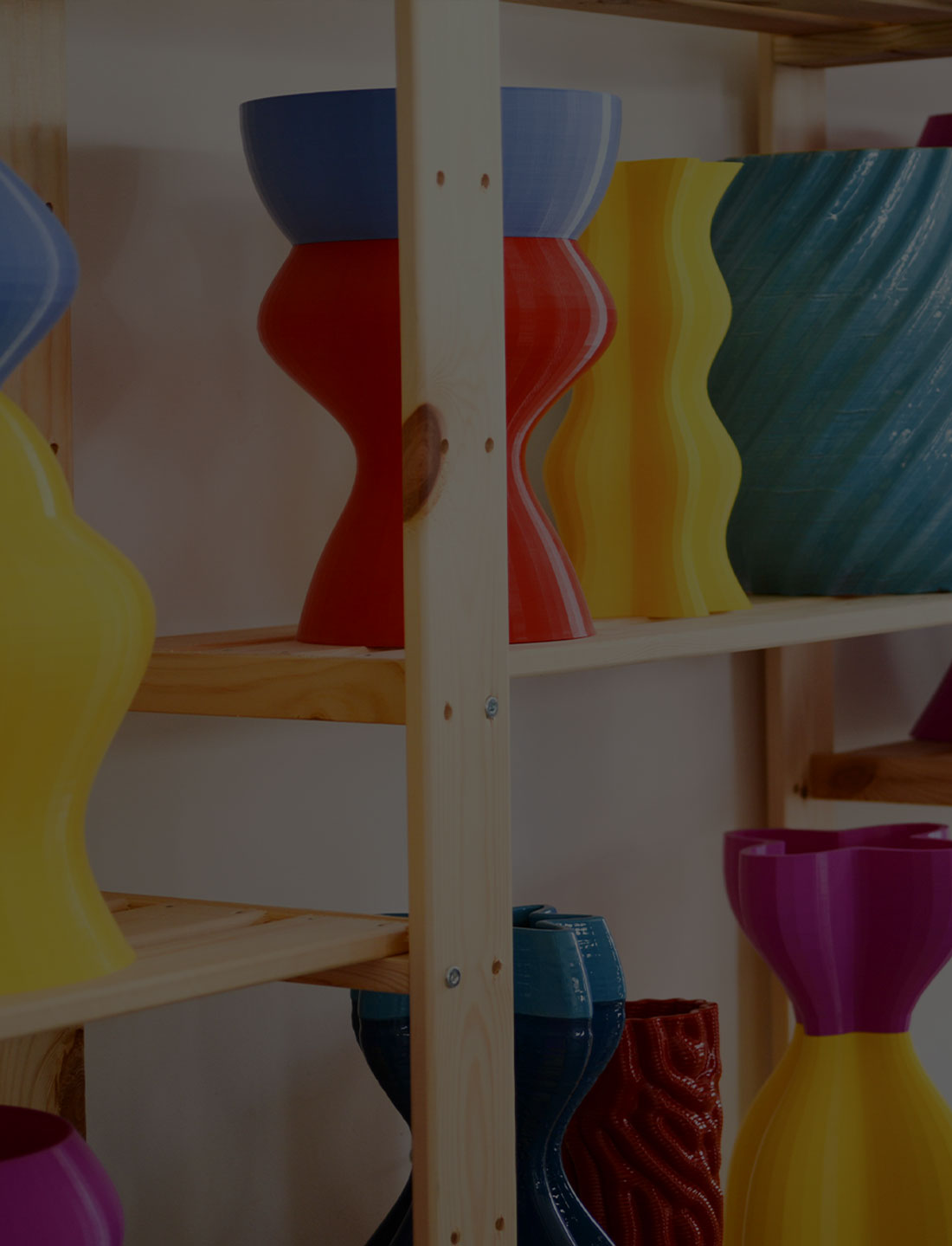
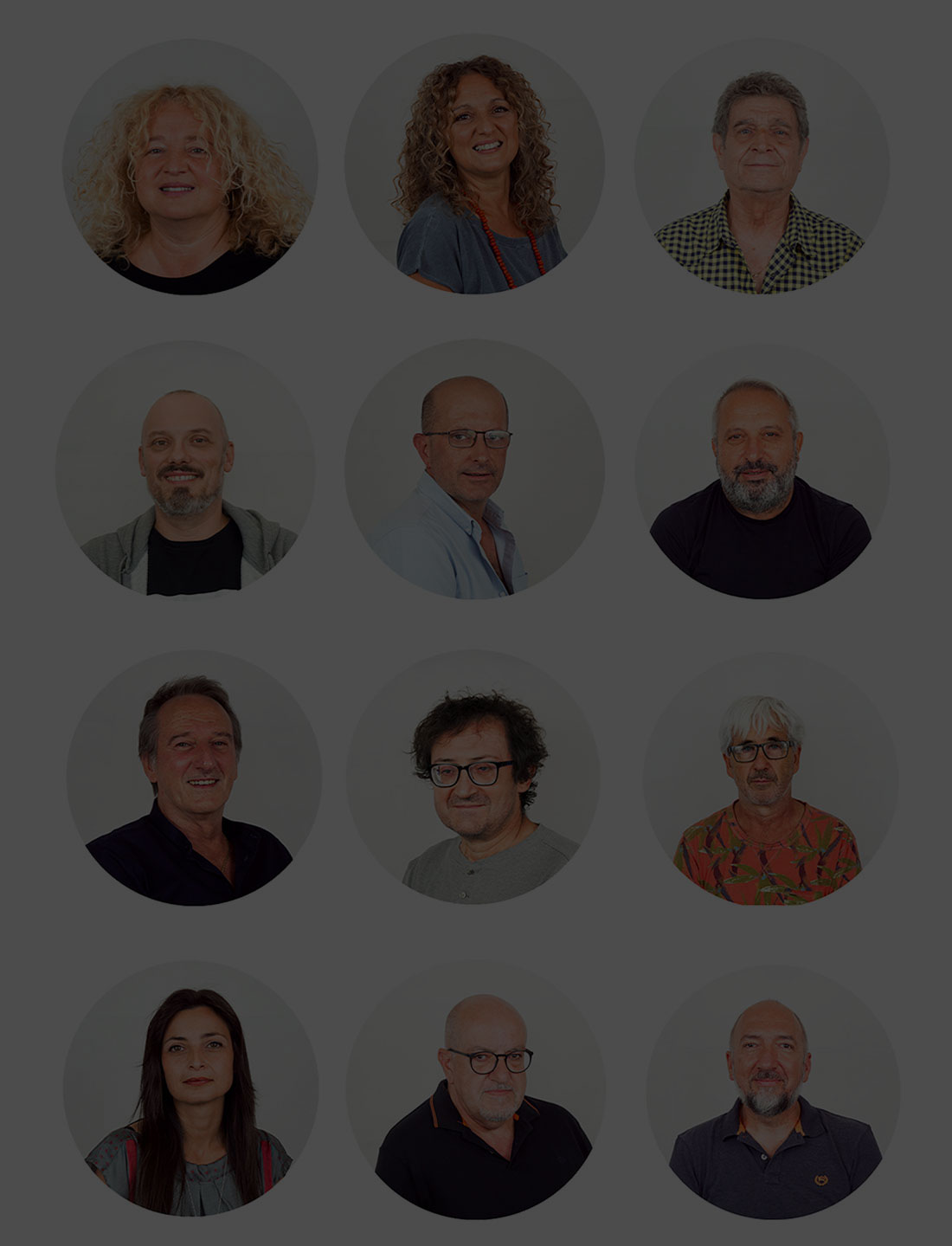
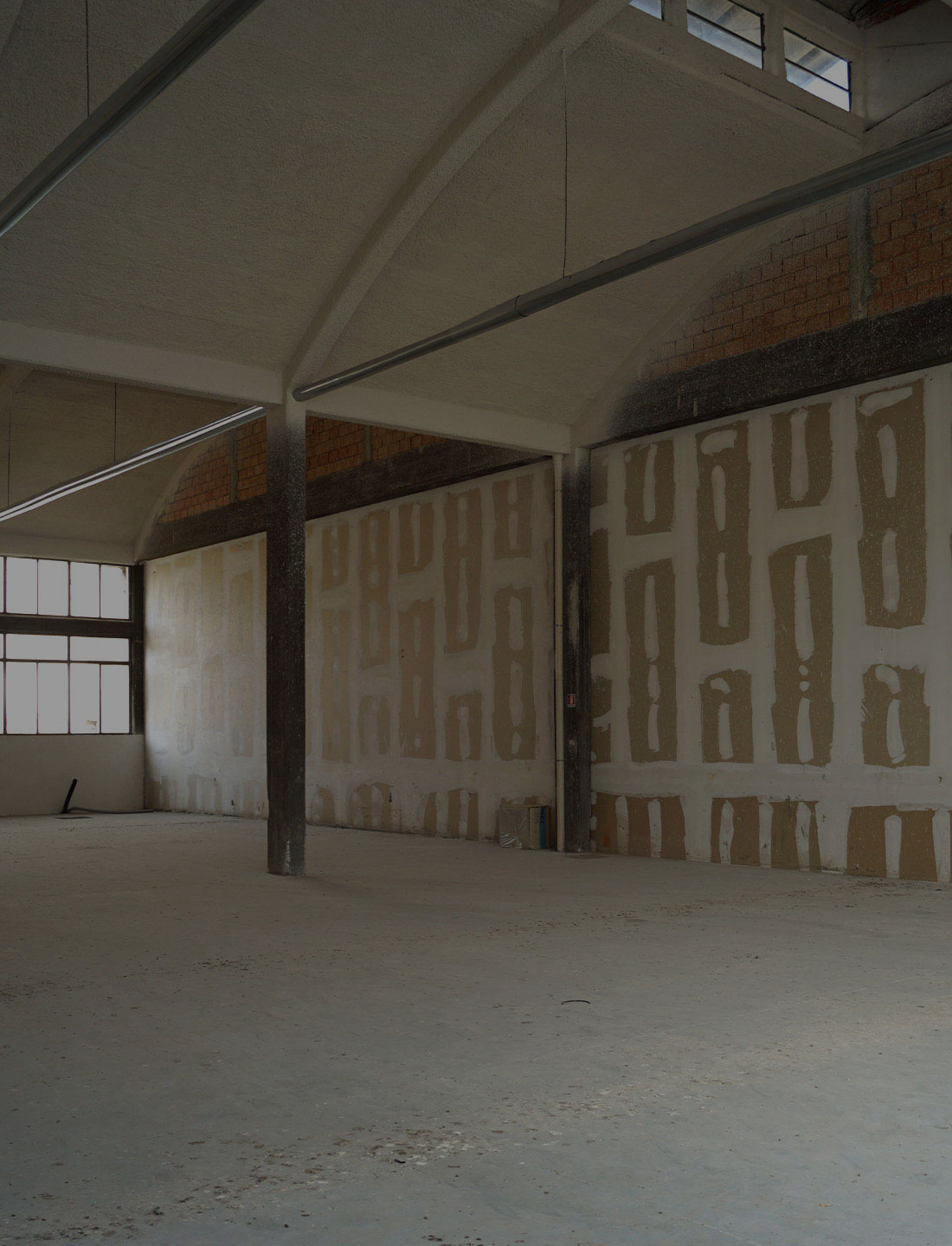
Aiden Moore
Egestas sed sed risus pretium quam vulputate dignissim suspendisse in. Pharetra sit amet aliquam id diam maecenas ultricies mi.